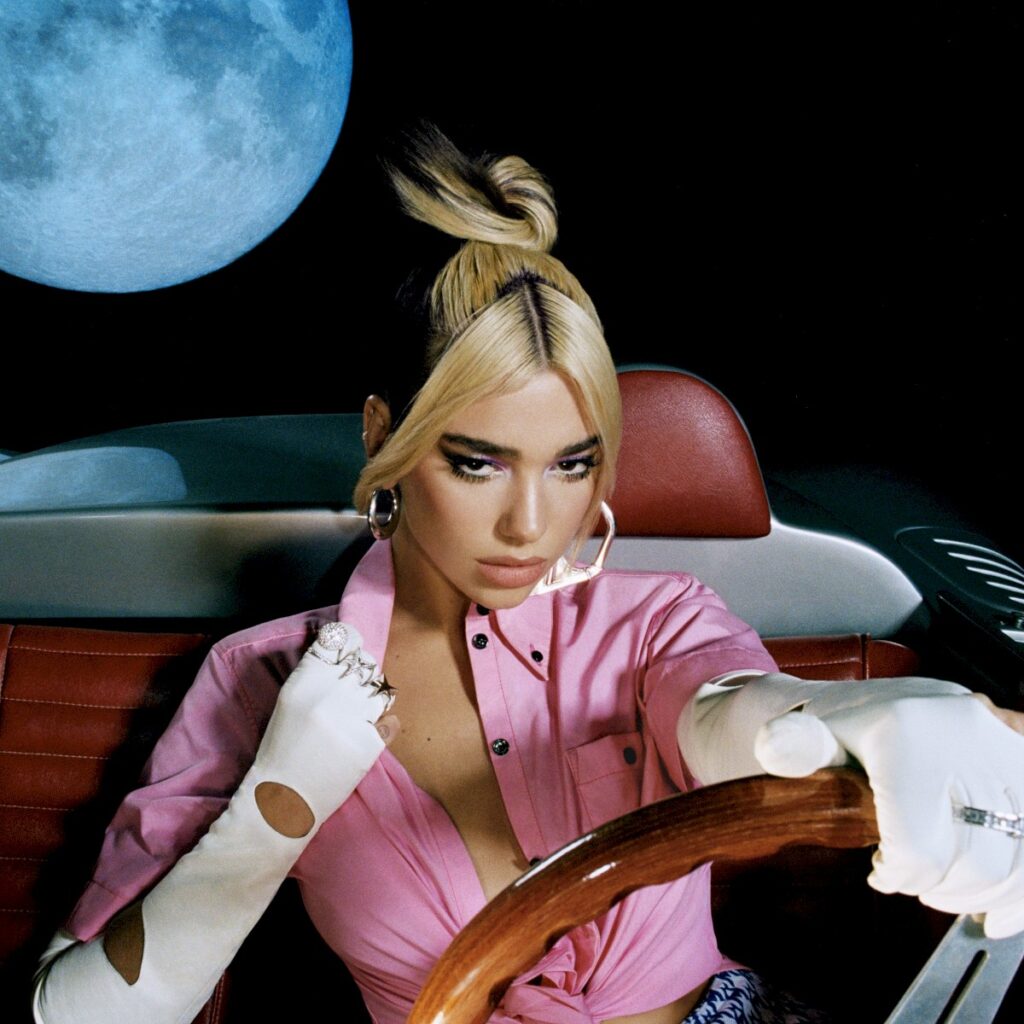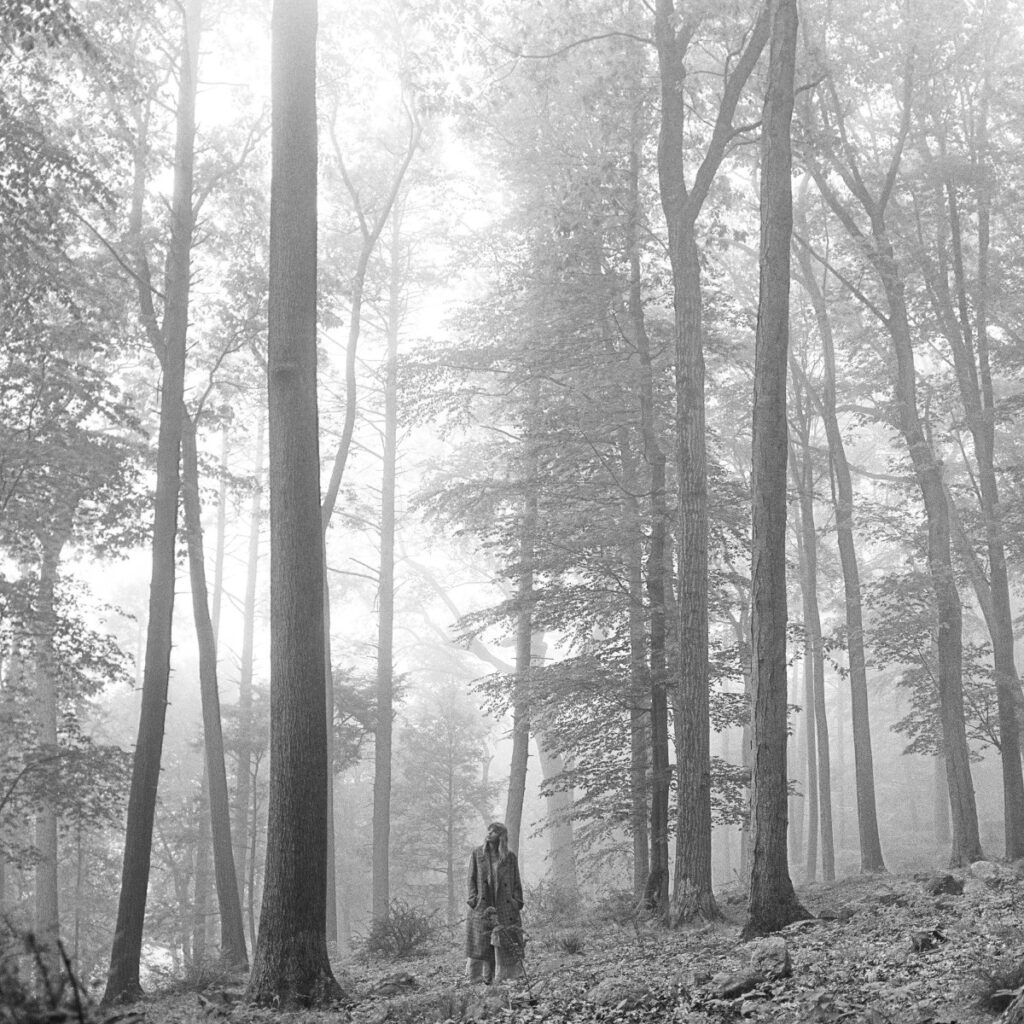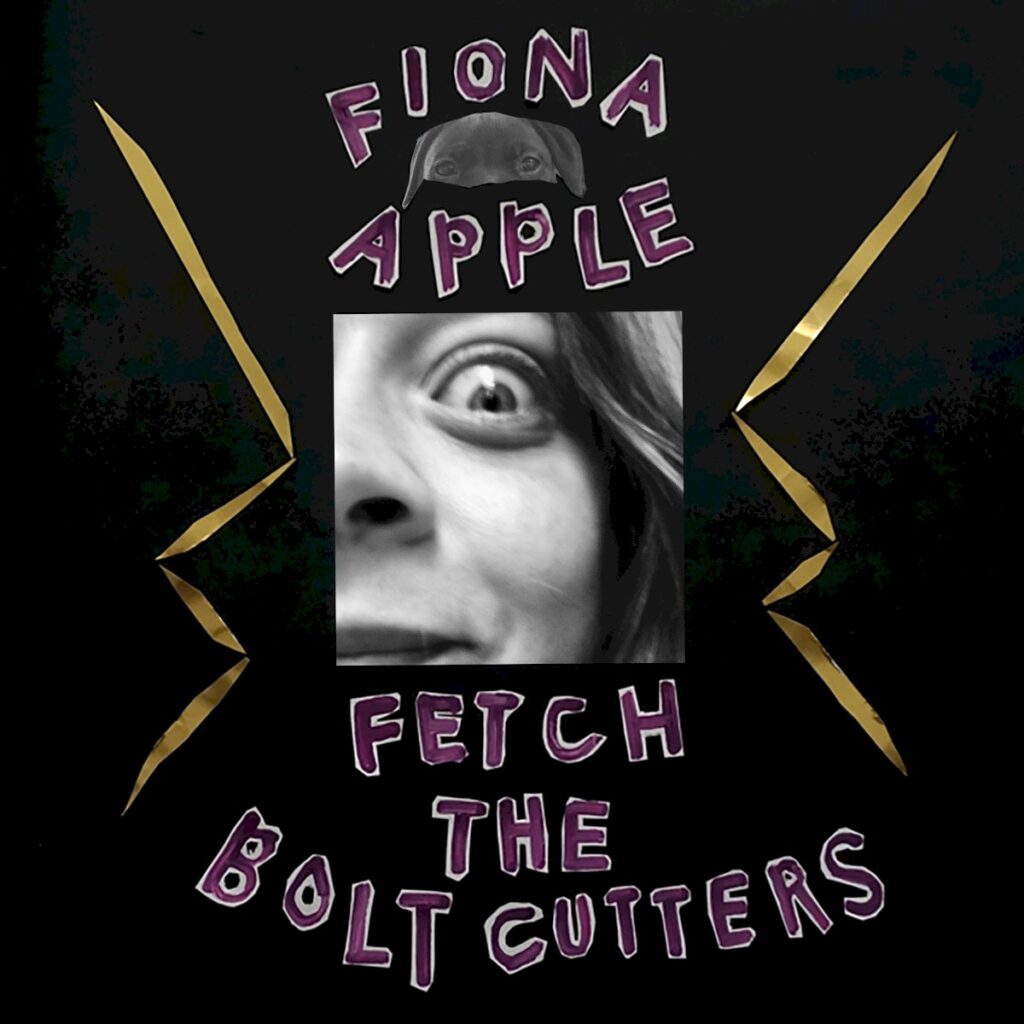Previously,
The Best 20 Albums of 2020: My Picks #20-16
The Best 20 Albums of 2020: My Picks #15-11
The Best 20 Albums of 2020: My Picks #10-6
5.
Dua Lipa, ‘Future Nostalgia’

Dua Lipa’s sophomore album, Future Nostalgia, is a dazzling, neon-lit homage to the past while firmly planting its stiletto heels in the present. At its core, Future Nostalgia is a paradoxical time capsule — its title suggests a longing for the past, entwined with an eye toward the future. Lipa masterfully marries the nostalgic sounds of the 70s, 80s, and 90s with a contemporary flair. This juxtaposition is not merely an aesthetic choice but serves as a vehicle for the album’s thematic explorations. The song Future Nostalgia itself acts as a thesis statement for the album, encapsulating its duality with lines like, “You want a timeless song, I wanna change the game.” This suggests a tension between timelessness and innovation, a desire to respect musical heritage while pushing the envelope. Empowerment is a recurring theme, with Lipa presenting herself as a “female alpha” who navigates the landscape of love, sex, and self-assertion with confidence and control. The album navigates the complexities of relationships with tracks like Don’t Start Now directly addressing an ex-lover with a tone of empowered closure, transforming personal upheavals into dance floor anthems. Future Nostalgia is an intricately produced masterpiece that seamlessly merges different eras of music into a cohesive whole. The album is seasoned with nostalgic elements ranging from 70s disco, 80s synth-pop, to 90s house and 2000s dance-pop. The listener is thus taken on a journey that spans multiple decades of music history, yet the resulting sound feels remarkably cohesive and uniquely hers. Inspired by the floor fillers of the late ’70s and later nu-disco acts like Daft Punk, the lead single, Don’t Start Now, features a pulsating bassline and infectious beats that make it an instant dancefloor hit. Tracks like Levitating revel in funky guitars, handclaps, and talk-box vocals, while Love Again mixes ’70s disco strings with 21st-century nu-disco production. Essentially, Future Nostalgia is a love letter to the dance floor, framed in the contemporary context of 2020’s socially distant living. By transforming the club into a space-age fantasy, Dua Lipa taps into an aspirational hedonism that pushes the malaise of the early 2020s.
4.
Phoebe Bridgers, ‘Punisher’

When you said I will never be your vegetable
Because I think when you’re gone it’s forever
But you know I’d stand on the corner
Embarrassed with a picket sign
If it meant I would see you
When I die
Phoebe Bridger’s sophomore album, Punisher, is an album that grapples with the weight of personal and collective grief. Bridgers has described the album as being about “crying” and the feeling of numbness. The album’s title track, Punisher, sets the tone for the rest of the record, exploring themes of idolization and the complexities of unspoken connections. The song navigates the duality of admiration and personal reflection, set against the backdrop of everyday life. The album is haunted by memory, echoes, and sometimes literal ghosts. Bridgers’ fascination with death and the macabre is evident throughout the album, from the campy morbidity of Halloween to the thunderstorm of manic, discordant brass and drums that concludes I Know The End. The album’s themes of loss, death, and grief are particularly resonant in a year marked by global crises and personal turmoil. Bridgers’ lyrics on Punisher are both brutally honest and poetically claustrophobic and She has a knack for conveying deep emotions with just a few words, often blending the mundane with the profound. In Chinese Satellite, she sings about jogging and aliens, capturing the tension between the inner and outer self. Also, Bridgers’ ability to fictionalize her own experiences and emotions is reminiscent of 1970s songwriters like Warren Zevon. Her couplets are either brutally self-directed or quietly dazzling, as seen in ICU where she sings, “If you’re a work of art, I’m standing too close / I can see the brush strokes.” Moon Song is one of the album’s most heartbreaking tracks, with shimmering guitars and Bridgers’ haunting voice buttressing a tale of caring too much for someone who doesn’t love himself or love her back.
The composition and production of Punisher subtly expand upon her debut Stranger in the Alps without shaking up its fundamental sound, incorporating oddball instruments like optigan flutes, celestes, and tongue drums. The album’s opener, DVD Menu, is a short atmospheric piece that serves as a fitting callback to her previous work while setting the stage for the rest of the record. Songs like ICU start on the attack with pounding drums and guitars, pulsing synths, and dynamic rises and crashes, creating a sense of intensity and urgency. Songs like Garden Song and Savior Complex feel like lightly orchestrated classic singer-songwriter pop, drawing comparisons to Elliott Smith’s late-career maximalist pop. Bridgers’ use of double-tracking her vocals, a technique she learned from engineer Joseph Lorge, adds a haunting quality to her voice. The album’s closing track, I Know The End, features a sound-collage crescendo that concludes with a disorienting jolt of choking pop dystopia, capturing the fractured American heartland from a tour bus window.
A slaughterhouse, an outlet mall
Slot machines, fear of God
Windows down, heater on
Big bolts of lightning hanging low
Over the coast, everyone’s convinced
It’s a government drone or an alien spaceship
Either way, we’re not alone
I’ll find a new place to be from
3.
Waxahatchee, ‘Saint Cloud’

That’s what I wanted
It’s not as if we cry a river, call it rain
West Memphis is on fire in the light of day
Give me something, it ain’t enoughI take it for granted
If I could love you unconditionally
I could iron out the edges of the darkest sky
For some of us it ain’t enough
Released on March 27, 2020, amidst the chaos of the COVID-19 pandemic, Katie Crutchfield’s fifth studio album, Saint Cloud, stands as an unvarnished testament to resilience, introspection, and transformation. Saint Cloud is deeply rooted in the concept of place and setting, drawing inspiration from Crutchfield’s Southern roots. The album’s title is a nod to her father’s hometown of St. Cloud, Florida, which serves as a metaphor for the universal search for solace and self-identity. The album explores themes of transformation, introspection, and the pursuit of inner peace, often using vivid imagery and metaphorical language to convey these ideas. Crutchfield’s decision to get sober in June 2018 significantly influenced the album’s thematic direction. The lyrics reflect her journey towards self-awareness and acceptance, addressing issues of addiction and codependency with a sense of hope and resilience. This personal transformation is mirrored in the album’s sound, which shifts from the grittier, indie-rock edge of her previous works to a more delicate and vibrant Americana style. Songs like Fire and Lilacs explore these themes with crystalline lyrics that betray Crutchfield’s sharpened observational skills and her willingness to expose her inner turmoil and triumph. In Fire, Crutchfield sings about learning to see with a “partial view,” a metaphor for looking past imperfections and embracing life’s complexities. Lilacs blends mundane and grandiose imagery to explore the themes of maturity and self-awareness, with lines like “And the lilacs drink the water/And the lilacs die” poignantly capturing the cyclical nature of growth and decay. The title track, St. Cloud, serves as the thematic centerpiece of the album, delving into the complexities of relationships and the constant evolution of one’s emotions.
Musically, Saint Cloud transitions into a softer, more contemplative sound that diverges from the raw indie-rock anthems of Crutchfield’s earlier works. Here, she veers into a more crystalline, Americana soundscape, replete with twangy guitars, gentle percussion, and bucolic synths. This sonic pivot is not just a stylistic choice but a thematic one, aligning the sonic palette with the album’s reflective and introspective narrative. The production of Saint Cloud can be described as both minimalist and expansive, a delicate balance that allows each track to breathe. Producer James Cook’s approach to production ensures that the album retains a coherent sonic identity while permitting Crutchfield’s nuanced performances to shine through. Songs like Can’t Do Much and Witches feature golden melodies and warm, folk-infused instrumentation that lend a timeless quality to her work. To summarize, Saint Cloud is a testament to personal transformation set against the backdrop of America’s heartland, a meditation on life’s cyclical nature, urging listeners to find solace and beauty in the journey of self-discovery.
If I’m a broken record, write it in the dust babe
I’ll fill myself back up like I used to do
And if my bones are made of delicate sugar
I won’t end up anywhere good without you
I need your love too
2.
Taylor Swift, ‘folklore’

They told me all of my cages were mental
So I got wasted like all my potential
And my words shoot to kill when I’m mad
I have a lot of regrets about that
I was so ahead of the curve, the curve became a sphere
Fell behind all my classmates, and I ended up here
Taylor Swift’s eighth studio album, folklore, is a monumental work that departs significantly from her previous pop endeavors. Released on July 24, 2020, without the usual pre-release fanfare, it embodies a radical shift both in sound and conceptual depth. Written and recorded during the COVID-19 quarantine, folklore stands as a rich tapestry of introspection, storytelling, and minimalist production, setting a new benchmark in Swift’s celebrated career. folklore is an exercise in narrative storytelling and imaginative escapism. The album is steeped in a nostalgic, contemplative atmosphere, diverging from the confessional and autobiographical nature of Swift’s earlier works. Instead, folklore introduces fictional characters and narratives that allow Swift to explore themes of romance, longing, infidelity, and youthful regret from a distance. A notable shift is the album’s exploration of third-person perspectives, a method that was relatively rare in her catalog. Tracks like the last great american dynasty chronicle the life of Rebekah Harkness, a socialite who owned Swift’s Rhode Island home decades earlier. The song blends historical context with Swift’s imaginative spin, making for a compelling narrative. This use of personas and storied characters is consistent throughout the album and adds layers of depth to Swift’s songwriting prowess. Swift has always been lauded for her lyrical abilities, but on folklore, she achieves a new level of sophistication and maturity. The lyrics are rich with vivid imagery and poetic resonance, often taking cues from indie-folk traditions. Swift’s writing here displays a keen wit, compassion, and remarkable empathy. Songs like cardigan and August weave intricate tales of love and heartbreak, utilizing metaphor and nostalgia to evoke powerful emotional responses. cardigan employs the metaphor of an old, comfortable sweater to represent memories of a past relationship, while august recounts a summer romance that is ephemeral and bittersweet.
Musically, Folklore marks a departure from the pop-centric sound of Swift’s previous albums. The album is characterized by its folk, indie, and chamber pop influences, with lush acoustic arrangements and intricate instrumentation. Swift collaborated with Aaron Dessner of The National and her longtime collaborator Jack Antonoff to achieve this sound, resulting in a cohesive and atmospheric album that feels both timeless and contemporary. The production of folklore is notable for its minimalist and organic approach. The album was recorded remotely, with Swift, Dessner, and Antonoff working from their respective studios and exchanging digital files. This DIY process allowed for a level of intimacy and spontaneity that is evident in the final product. The album’s instrumentation is rich and varied, featuring piano, guitar, strings, and subtle electronic elements. The arrangements are often sparse, allowing Swift’s vocals and lyrics to take center stage. This is particularly evident on tracks like seven, which features a delicate melody reminiscent of an old Irish air, and the 1, which combines ringing piano chords with a sprightly beat.
Taylor Swift’s folklore is a transformative chapter in her career, where she trades the glitter and bombast of high-octane pop for muted hues and lyrical introspection. It is a masterful exploration of narrative storytelling, emotional depth, and minimalist production that stands as a testament to Swift’s ever-evolving artistry. By venturing into the realms of indie-folk and chamber pop, Swift not only reinvents herself but also cements her place as one of the most versatile and compelling songwriters of her generation.
Leave the perfume on the shelf that you picked out just for him
So you leave no trace behind like you don’t even exist
Take the words for what they are, a dwindling, mercurial high
A drug that only worked the first few hundred timesAnd that’s the thing about illicit affairs
And clandestine meetings and stolen stares
They show their truth one single time
But they lie, and they lie, and they lie
A million little times
1.
Fiona Apple, ‘Fetch The Bolt Cutters’

I resent you for being raised right
I resent you for being tall
I resent you for never getting any opposition at all
I resent you for having each other
I resent you for being so sure
I resent you presenting your life like a fucking propaganda brochure
Fiona Apple’s fifth studio album, Fetch The Bolt Cutters, heralds a new epoch not just for the artist but for contemporary music itself. Spanning the course of eight years from its predecessor, The Idler Wheel…, this album’s release resonated like a sonic keynote during the confinement of the COVID-19 pandemic, appearing almost prophetic in its exploration of themes related to the captivities imposed by society and self. The album is a manifesto on breaking free and speaking out, underpinned by a robust feminist undertone. Apple confessed that one major thematic vein of the record is the struggle to “not fall in love with the women who hate me”. This permeates through songs like Shameika, where a middle-school reminiscence becomes a powerful ode to the affirmation she needed during her formative years. Simple words from a classmate—”Shameika said I had potential”—travel through Apple’s career to emerge in a heartbeat tempo mantra, reflecting her ongoing journey of self-discovery. The album is also intensely autobiographical while maintaining universal applicability. Tracks such as Ladies explore complex experiences of jealousy and solidarity through witty yet perfectly barbed lyrics. Apple uses her narrative prowess to magnify the mundane into the monumental; it’s equal parts poetic and polemic. The repetition and variation of lyrical constructs, like in Ladies, transforms language into both shield and sword, deftly undermining conventional pop paradigms to reveal poignant truths. In Shameika, Apple reflects on a childhood encounter with a schoolmate who told her she had potential, a moment that left a lasting impact on her self-perception. Apple’s lyrics are not just personal but also deeply empathetic, addressing broader issues of abuse and solidarity among women. The song Relay features the poignant line, “Evil is a relay sport when the one who’s burnt turns to pass the torch,” exploring the cyclical nature of pain and resentment among women. In Newspaper, she sings about the shared experiences of women who have loved the same man, highlighting the sisterhood that can emerge from shared pain.
Apple’s composition process for Fetch The Bolt Cutters veers decisively from traditional studio production, marked by its unconventional use of percussion. Apple and her collaborators used found objects like metal butterflies and the bones of her deceased dog Janet as instruments. Much of the recording took place in her Venice Beach home, utilizing an array of ‘found sounds’—dog barking, clinking glasses, banging on walls, stomping on floors, and incorporating ambient sounds. This imparts an organic, almost tactile, and even chaotic texture to the music that conjures images as immediate as they are surreal. Percussion dominates the album’s soundscapes with chaotic and experimental initiatives that echo rhythmic ideation rather than melodious continuity. This percussive bravura often verges on industrial music, yet it juxtaposes neatly against Flea’s traditional melodies in ways that demand active listening and reflection. One hears the improvisational nature vividly in tracks like Relay, where her rebuking of cyclic negativity becomes symbiotic with pulsating drums that feel almost incantatory.
Fetch The Bolt Cutters embodies Fiona Apple’s quintessential spirit—unrestrained yet deliberate, intimate yet expansive. It’s a work that resists the tidy categorizations of genre and sentiment, opting instead for a sprawling, rigorously assembled exploration of the self in the flux of a confining world. Fiona Apple doesn’t merely fetch the bolt cutters; she hands them to us all, imploring us to carve our own paths out of imposed stillness and into percussive liberation.
When you resist me, hon, I ceast to exist
Because I only love the way I look, I look in your eyes
And when you come back
You commemorate the penetration of the sun into the deep dark sky
Continue Reading:
The Best 20 Albums of 2021: My Picks
The Best 20 Albums of 2022: My Picks
The Best 20 Albums of 2023: My Picks